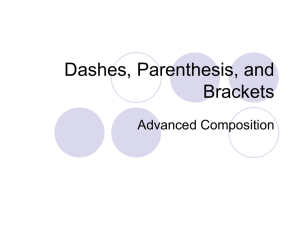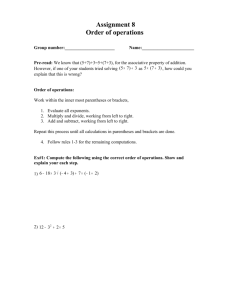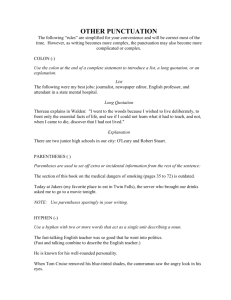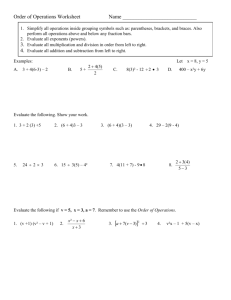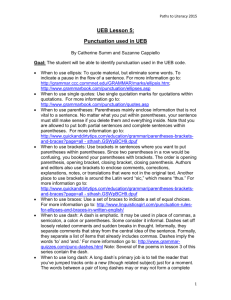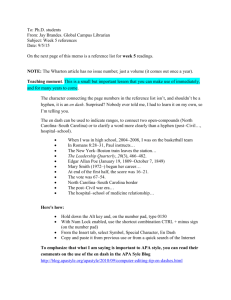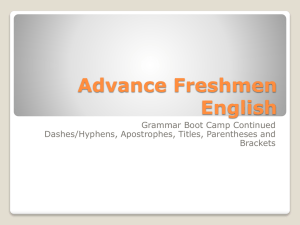To set things off : also parentheses and dashes
advertisement
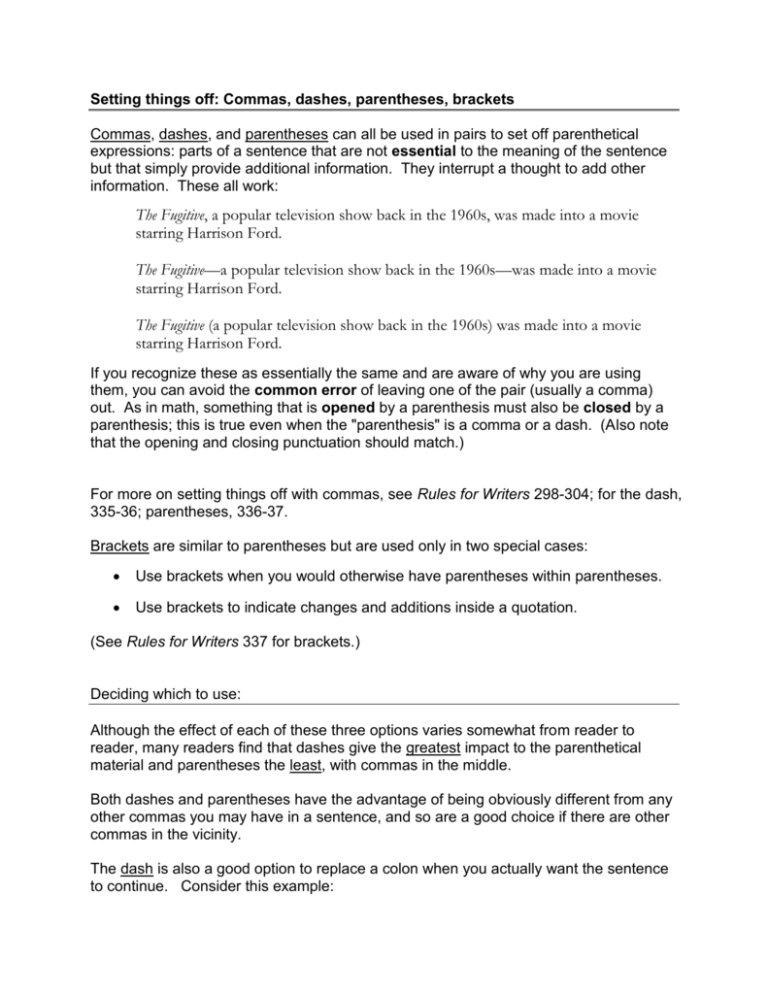
Setting things off: Commas, dashes, parentheses, brackets Commas, dashes, and parentheses can all be used in pairs to set off parenthetical expressions: parts of a sentence that are not essential to the meaning of the sentence but that simply provide additional information. They interrupt a thought to add other information. These all work: The Fugitive, a popular television show back in the 1960s, was made into a movie starring Harrison Ford. The Fugitive—a popular television show back in the 1960s—was made into a movie starring Harrison Ford. The Fugitive (a popular television show back in the 1960s) was made into a movie starring Harrison Ford. If you recognize these as essentially the same and are aware of why you are using them, you can avoid the common error of leaving one of the pair (usually a comma) out. As in math, something that is opened by a parenthesis must also be closed by a parenthesis; this is true even when the "parenthesis" is a comma or a dash. (Also note that the opening and closing punctuation should match.) For more on setting things off with commas, see Rules for Writers 298-304; for the dash, 335-36; parentheses, 336-37. Brackets are similar to parentheses but are used only in two special cases: Use brackets when you would otherwise have parentheses within parentheses. Use brackets to indicate changes and additions inside a quotation. (See Rules for Writers 337 for brackets.) Deciding which to use: Although the effect of each of these three options varies somewhat from reader to reader, many readers find that dashes give the greatest impact to the parenthetical material and parentheses the least, with commas in the middle. Both dashes and parentheses have the advantage of being obviously different from any other commas you may have in a sentence, and so are a good choice if there are other commas in the vicinity. The dash is also a good option to replace a colon when you actually want the sentence to continue. Consider this example: Many old television shows have been made into movies: The Fugitive, The Untouchables, and Starsky and Hutch. But what if you want to say more about these movies in addition to listing them? Many old television shows have been made into movies: The Fugitive, The Untouchables, and Starsky and Hutch, but many people find these movies inferior to the originals. What’s the problem? Many old television shows have been made into movies—The Fugitive, The Untouchables, and Starsky and Hutch—but many people find these movies inferior to the originals. The dash provides a solution. Know the difference between the dash and the hyphen: Even when it is not being used in a pair, the dash separates words, phrases, or clauses. Often, this is to indicate a pause (very informal—use sparingly in formal writing). The Fugitive was a popular television show—back in the 1960s. The hyphen connects words: Dr. Richard Kimble said his wife was killed by a one-armed man. Using a hyphen when you need a dash can cause confusion, if only temporary: The Fugitive was a popular television show-back in the 1960s. (What’s a “showback”?) (For more detail about when to use and not to use the hyphen, see Rules for Writers 358-61.) Keyboarding note: To make a dash, type two hyphens. Most word-processors with auto-format will convert this to a dash. You can also use “Insert symbol” in Word, and you can also just leave two hyphens to represent a dash. Fix these errors: 1. The California Penal Code added an amendment, Section 598b stating the eating of animals traditionally kept as pets was illegal. 2. The Women's Sports Foundation Executive Director, Donna Lopiano stated that . . . 3. He omits however, that the only reason that the news on the New York Times Online is free of charge is because of the marketing firms buying the information. 4. She also mentions the movements in the past—the "living will" law and the Supreme Court ruling that gave all Americans the right to refuse medical treatment, and uses the past as an example. 5. The essay "Point: Internet Marketing Threatens Consumer Privacy," by Russ Cobb claims that internet marketing using zip codes will lull everyone into conformity. 6. This statement draws on two of the largest denominations in the world, Catholics and Muslims to identify with this act and feel their privacy is invaded. 7. Providing a quote early in the essay from Martha Burk, a strong representative of the feminists’ group is a great way to pave the road for the rest of the essay.
